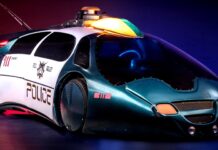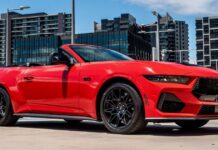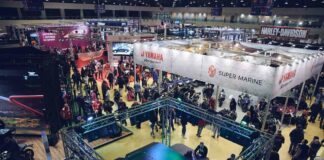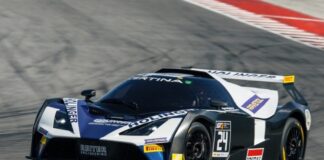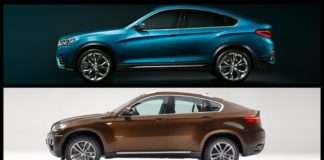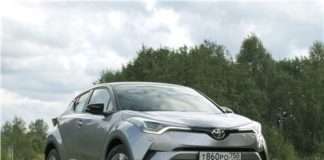The L322 Range Rover, produced from 2006 to 2012, occupies a unique place in automotive history. This generation of the luxury SUV, despite its age, continues to attract buyers with its distinctive blend of features, presence, and personality. But, like any classic vehicle, it comes with its own set of challenges and compromises.
The Allure of the L322 Range Rover
For many, the appeal of the L322 Range Rover lies in its imposing presence and quality feel. Conceived during BMW’s ownership of Land Rover, this third-generation model represented a significant step forward from its predecessor.
- Sophisticated Design: It featured a more modern and assertive design language compared to the Isuzu-based L318. Its larger size and more premium look were a statement in themselves.
- Refined Interior: The cabin quality was substantially improved. Materials felt more premium, and technology was ahead of its time for its price point (though basic models still existed).
- Capability: At its core, the Range Rover ethos remains unchanged – capability. The L322 boasted advanced all-wheel-drive systems (like Dynamic Rear Lift, or DRL) and was renowned for its off-road prowess, even in standard-spec models.
- Value Proposition: Especially for older models, the L322 Range Rover offers remarkable value for money. A well-maintained example from a decade ago could be acquired for significantly less than a modern economy car.
The “Imperious Mien”
As recounted in the original piece, the Range Rover has a certain “quietly imperious” quality. This refers to its graceful yet commanding presence. The throne-like front seats, the sense of occasion when you sit inside, and the sheer size of the vehicle contribute to this feeling. It’s a car that doesn’t just transport you; it commands attention, even if subtly.
Warts and All: The Challenges
Despite its strengths, the L322 Range Rover is not without its significant drawbacks and common issues:
1. Reliability Concerns
This is perhaps the most significant consideration. The L322 era was a transition period for Land Rover, moving away from the simpler, more robust mechanicals of the past towards more complex systems.
- Electrical Glitches: As one owner noted, “electrical” is often the catch-all explanation for many L322 problems. This can range from minor annoyances (incorrectly illuminated warning lights) to major system failures.
- Complex Electronics: The increased sophistication brought reliability trade-offs. Complex systems are inherently more prone to glitches and failures than simpler mechanical ones.
- Heated Seats: A notorious failure point for many owners, often requiring costly repair or replacement.
- Satellite Navigation: While innovative for its time, the early systems could be temperamental.
- Suspension Issues: The L322 used air suspension across many trims, replacing the simpler, more robust coil-spring setups. Air suspension systems are generally more complex and expensive to repair.
- Air Bags: As mentioned, complete sets of suspension airbags can be a costly repair.
- Dampers: Progressive Rate Dampers (PRDs) were standard on higher trims and can develop issues over time.
- Engine Reliability: While generally reliable, engines can develop issues, particularly older diesel engines known for timing chain problems (though this was less common than perceived).
2. Age and Wear
Buying any car over a decade old means inheriting wear and tear. The L322, now in its second decade of retirement for many, requires diligent maintenance.
3. Parts Availability and Cost
Finding genuine parts can sometimes be challenging and expensive. While aftermarket options exist, they may not always match the quality or fit-out of original equipment.
The Salesman’s Warning and the Owner’s Decision
The original article highlights a crucial piece of advice often overlooked by prospective buyers: the need for realistic expectations. The salesman’s candid admission that Range Rovers “can be challenging to own” and that buyers “really need to want one” underscores the compromises involved. Owning an L322 requires a certain tolerance for potential problems and a commitment to ongoing maintenance and repairs. The owner quoted later reinforces this – despite issues with electricals and suspension (the latter knowingly), the personal attachment outweighs the practical concerns for some.
Conclusion: A Classic Choice
The L322 Range Rover remains a fascinating vehicle. It bridged a technological gap, offering a significant leap in refinement and capability while retaining the core Range Rover values. Its appeal lies in its distinctive style, imposing presence, and capability. However, potential buyers absolutely must be aware of the higher potential for mechanical issues, particularly electrical and suspension-related ones, which often come at a cost.
For those who appreciate its history, its style, and are prepared for the associated ownership realities, the L322 Range Rover offers immense character and capability. But it is not a car for the faint of heart or those prioritizing absolute reliability and low running costs over a unique driving experience. It represents a classic, powerful, and often challenging piece of automotive history – love it or leave it, it demands attention













